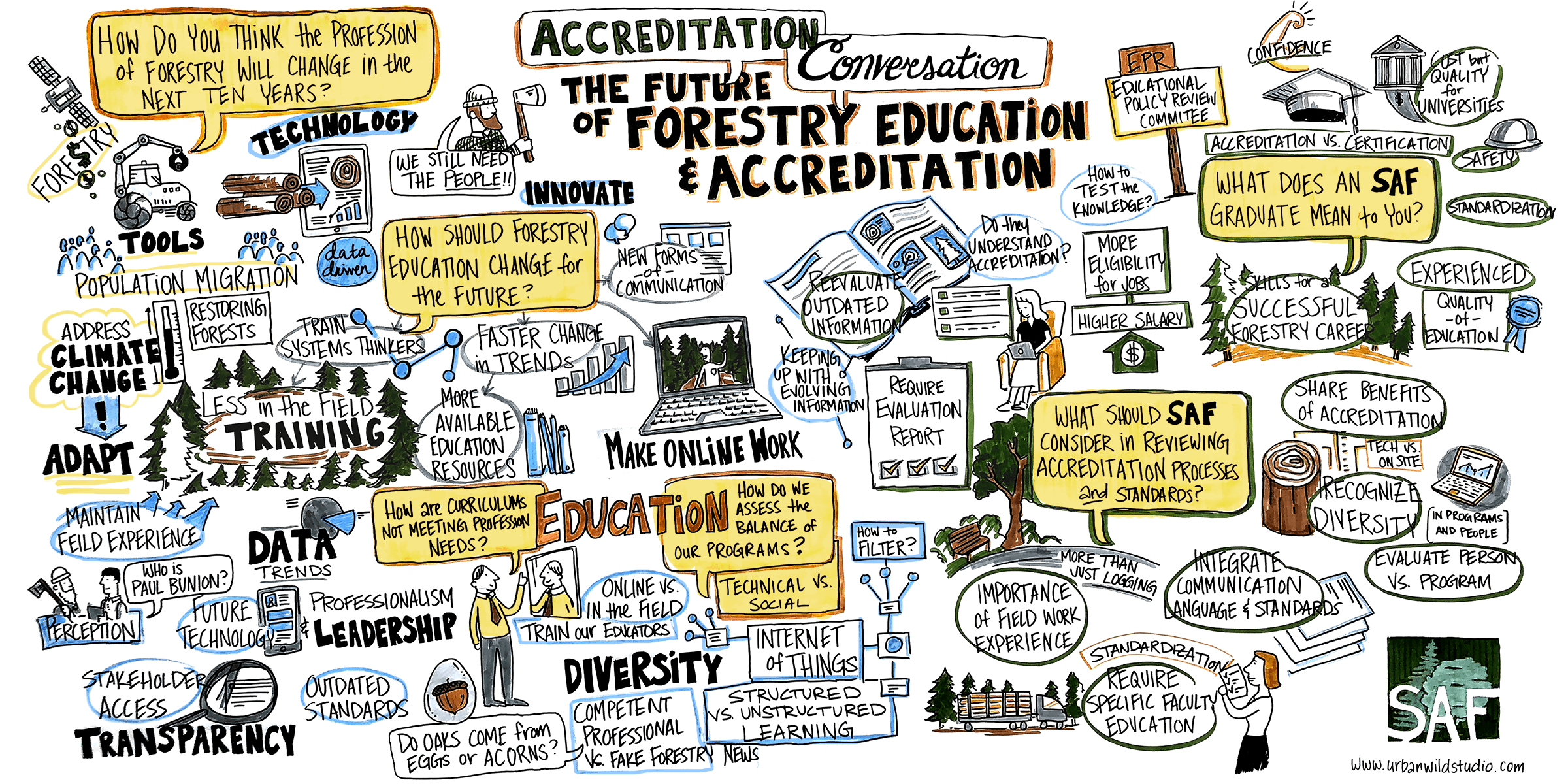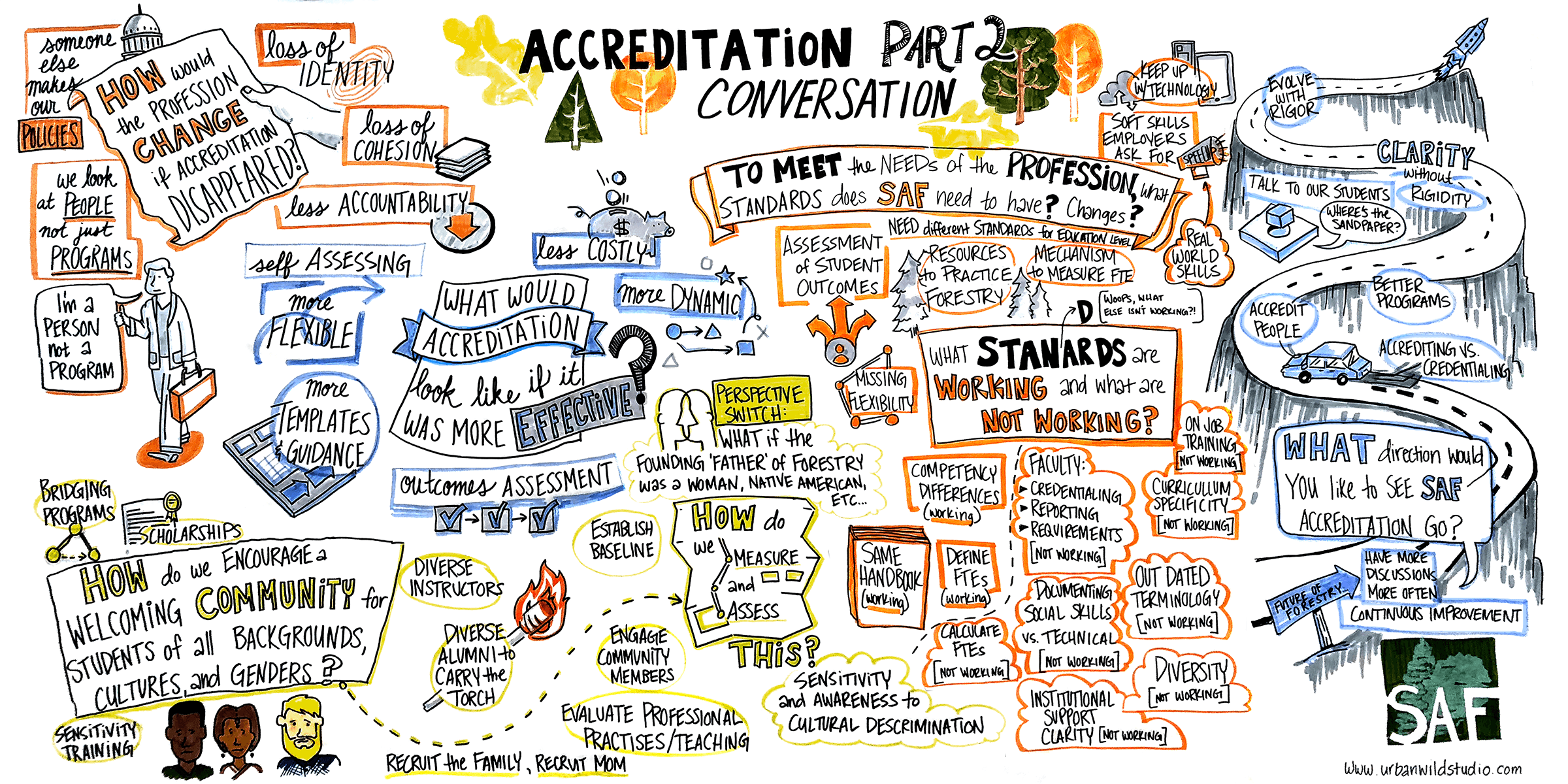Update: Comprehensive Review of SAF Accreditation – December 2020
December 22, 2020
Since 1935 when SAF initiated review of educational programs in forestry, accreditation has remained an important function of the Society. Over the years, accreditation processes and standards have been reviewed and revised periodically to assure that those managing forested ecosystems continue to meet contemporary needs.
For example, SAF first established guidelines for recognizing forest technology programs in 1971 and changed from recognition to accreditation effective in 2009. A standard for accrediting urban forestry programs was approved in 2007 and another for natural resource and ecosystem management programs in 2013. Thus, SAF currently accredits two-year associate degree programs under the Forest Technology standard, and baccalaureate and professional master’s programs under Natural Resources and Ecosystem Management (NREM), Urban Forestry, and Forestry standards.
Accreditation Review Sessions
A comprehensive review of the accreditation policies and procedures began in 2018 and had not taken place since 2000. This review began with the SAF Educational Policy Review Committee (EPRC) hosting two World Café-style conversations designed to gather thoughts from a cross-section of SAF members and accreditation stakeholders at the national convention. The conversations were graphically recorded.
The first session sought insights into:
-
how managing forested landscapes and education will change in the next 10-20 years;
-
how to balance new graduates’ needs for technical skills and social skills;
-
what does/should SAF accreditation mean; and
-
what should be considered in reviewing accreditation procedures and standards.

The second session explored:
-
how necessary is accreditation and what would it look like if it was more effective;
-
how might we encourage welcoming cultures for every student within accredited programs;
-
how many accreditation standards should there be and what are the core outcomes of accredited programs; and
-
in what direction would you like to see SAF accreditation advance?

Further conversations were held at the 2019 national convention to apprise stakeholders about the changes being considered up until that time and to gather input on the various competencies in terms of what students should ‘know about’, ‘understand’, or ‘be able to do’.
Progress to Date
Since holding its initial 2 conversations in 2018, the EPRC has been systematically working through each piece of each standard to identify what to keep and what to discard, by reviewing against the following questions:
-
Why is this an important minimum requirement?
-
What is an acceptable method to meet – parameters of how?
-
What is working well?
-
What can be improved?
-
What is obsolete?
-
How does each requirement fit into the overall objectives for accreditation?
-
How does each requirement add to the overall process and evaluation?
Additionally, many of the requirements have been reworded to provide more clarity, along with an addition in some instances of ‘context’ that will help guide programs, review teams, and committees. Proposed changes also include more emphasis on opportunities for students to develop non-discipline specific skills like communications, leadership, teamwork, and a more focused emphasis on intentional inclusiveness rather than a requirement to report demographic numbers.
The Next Steps
The proposed revisions to each standard will be available for public review and comment via a Survey Monkey instrument from December 28 – January 24. We encourage all interested parties to participate.
Watch for an announcement in the E-Forester or send an email to [email protected], if you would like to receive the link directly.